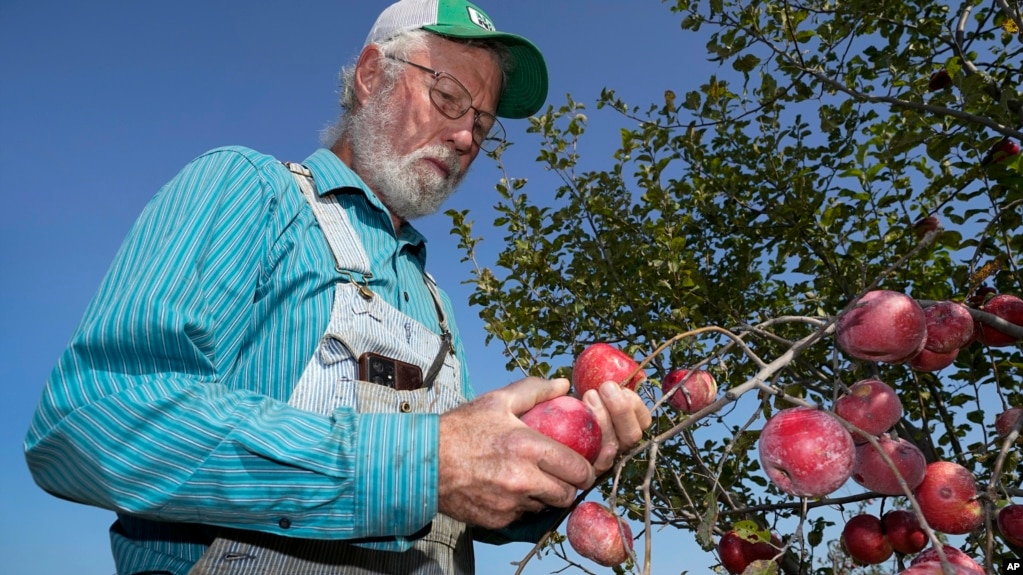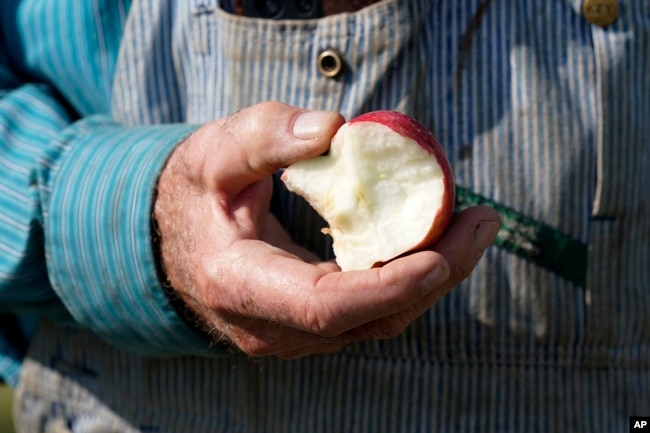Organic Food Is Popular, But US Farmers Still Unsure

Demand for organic produce has increased so fast that it has grown faster than the supply in the United States.
The challenge for U.S. farmers is not getting buyers to pay higher prices; it is getting enough farmers to grow organic products.
Instead of growing to meet the demand, the number of farmers starting to grow organic crops is dropping. Last month, the U.S. Department of Agriculture (USDA) said it would spend up to $300 million to help more farmers make the change.
Chris Schreiner is executive director of the organic-approving organization Oregon Tilth. He said about the government support, “It feels good.” He added that it is an important step in this work.
Schreiner has worked at the Oregon-based organization since 1998. He said expanding technical training is important because of the difference between farming land with usual, or conventional methods, and organic ones. Schreiner noted that one farmer told him that changing a farm to organic production was like asking “a foot doctor to become a heart surgeon.”
The important difference is the use of synthetic fertilizers and pesticides and genetically changed seeds. Most conventional farms use those materials, but they are banned on organic farms. Instead, organic farmers must control unwanted plants and animals with different methods. They include seasonally changing crops and planting cover crops that push out unwanted plants and add nutrients to the soil.
Crops can only be called organic if they are grown on land that has not been treated with synthetic products for three years. During that period, farmers can grow crops, but they do not get the extra income that comes with organic crops.
Data from the USDA shows the number of conventional farms newly changing to organic production dropped by about 70 percent from 2008 to 2019. Organic produce makes up about six percent of overall food sales, but only one percent of the country’s farmland is in organic production. Foreign producers make up the rest.
Megan DeBates is vice president of government affairs for the Organic Trade Association. She said in the U.S., “There are so many barriers to farmers making that leap to organic.”

George Naylor holds an organic apple grown on his farm on September 13, 2022, near Churdan, Iowa. Naylor, along with his wife Patti, began the transition to organic crops in 2014. (AP Photo/Charlie Neibergall)
While farmers do not seem ready, U.S. buyers are. The Organic Trade Association found yearly sales of organic products have nearly doubled in the past 10 years and now reach about $63 billion. Sales are predicted to increase by 5.5 percent this year.
The new USDA effort would include $100 million toward helping farmers learn new methods for growing organic crops. It would include $75 million for farmers who meet new conservation standards. It would include $25 million to expand crop insurance programs and to reduce costs. And it would include $100 million to aid the development and expansion of markets for organics.
Nick Andrews of Oregon State University works with organic farmers. He called the USDA effort important.
Farmers with small farms should find this effort appealing because the added value of organic crops makes it possible to make more money from even 10 to 40 hectare farms. That is much smaller than the commercial operations that provide most of the country’s produce.
Andrews said, “I’ve seen organic farmers keep families in business who otherwise would go out of business.”
Words in This Story
challenge – n. a difficult task or problem
surgeon – n. a doctor who performs operations that involve cutting into someone's body in order to repair or remove damaged or diseased parts
synthetic – adj. made by combining different substances: not natural
pesticide – n. a chemical that is used to kill animals or insects that damage plants or crops
leap – n. a great and sudden change, increase, or improvement
standard – v. a level of quality or achievement that is considered acceptable or desirable
https://learningenglish.voanews.com/a/organic-food-is-popular-but-us-farmers-still-unsure/6760846.html